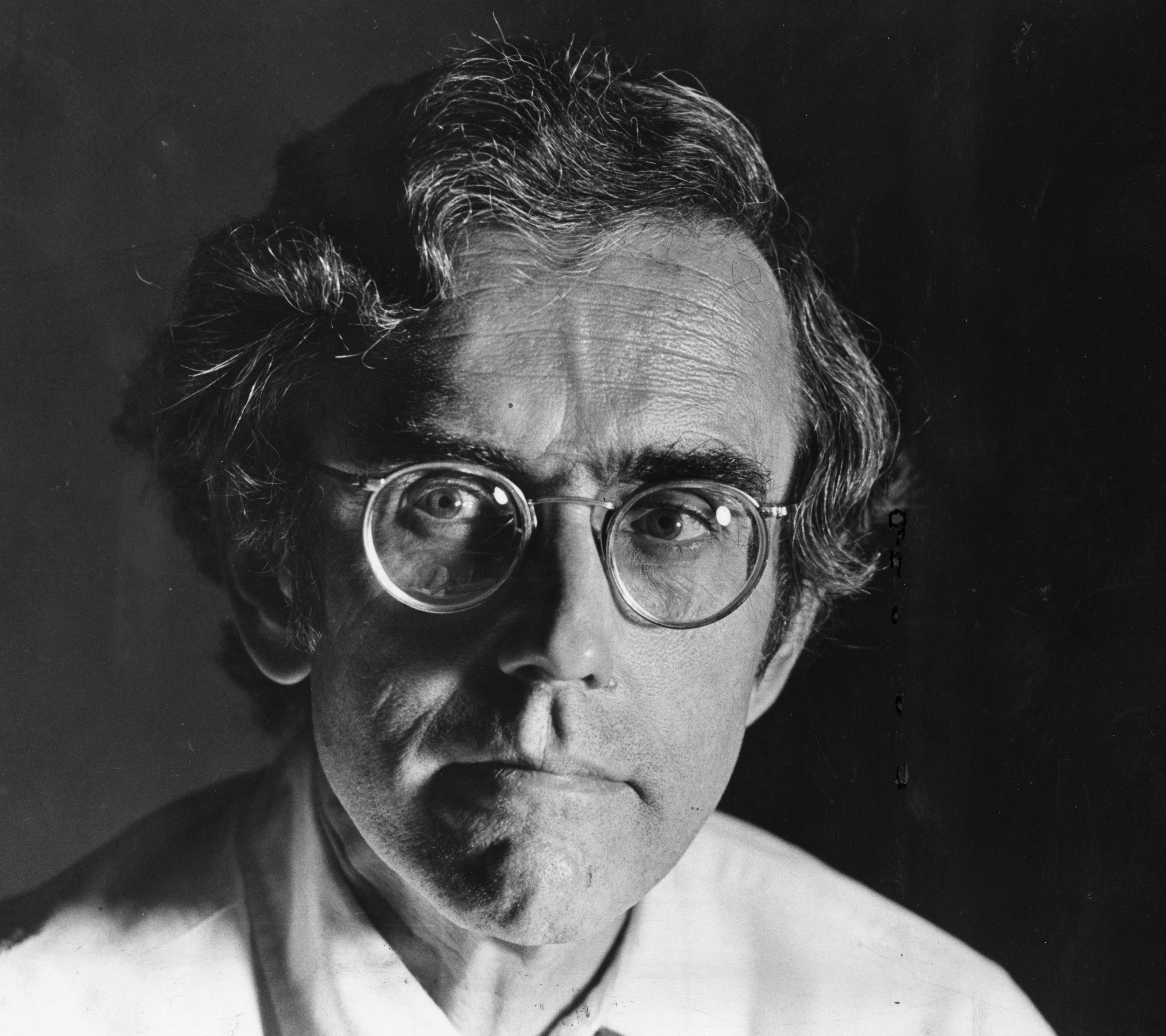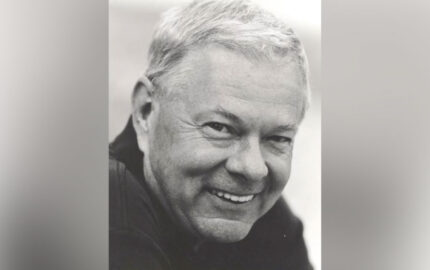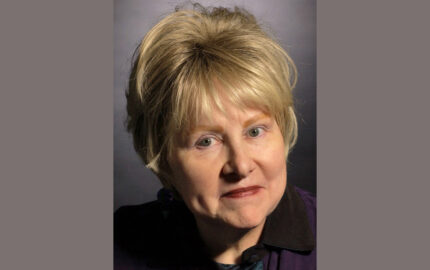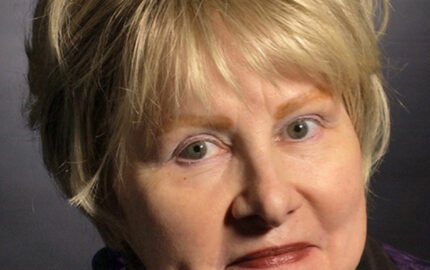Peter Binzen, a 1962 Nieman Fellow who covered Philadelphia for more than half a century, died in Bryn Mawr, Pennsylvania on November 16 from complications of a stroke. He was 94.
Binzen spent more than 30 years as a reporter, columnist, and editor covering education and urban affairs at The Evening and Sunday Bulletin. After the newspaper closed in 1982, Binzen was recruited by his Nieman classmate, Philadelphia Inquirer executive editor Gene Roberts, to join the Inquirer as a business columnist. It was at the Bulletin that Nieman Bill Marimow, now editor of the Inquirer, met Binzen:
It was spring 1970, and I was a wide-eyed, inexperienced newsroom staffer at The Philadelphia Bulletin, then one of the largest evening newspapers in the United States. Specifically, I was the assistant to the Bulletin’s economics columnist, J. A. Livingston, who had won the Pulitzer Prize for International Reporting just five years before. But even then, without being acutely aware of it, I had more ambitious dreams. That is why I was attracted to a note on the newsroom bulletin board from someone named Peter Binzen, metropolitan editor.
Binzen’s note invited one and all to provide him with ideas for “enterprise stories,” stories about the city of Philadelphia, its suburbs, south Jersey, and the waves of change that were engulfing a nation embroiled in a war in Vietnam that was dividing the country. The stories, Binzen, wrote would be showcased on page 3 of the newspaper. I can vividly recall tremulously typing up—yes, we had only typewriters back then—a list of more than a dozen story ideas to submit to Binzen. Arriving early for work, I walked into his office just behind the Bulletin’s library, and asked if I could share my ideas with him.
Binzen, who was 48 at the time, greeted me like an old friend and invited me to have a seat. As I sat there, he read the entire list, offering a comment about several ideas he considered promising. At the end of our talk, he asked me to write a story on the differences between hitchhiking in Europe in the summer of 1969, which I’d done for three months, and hitchhiking in Philadelphia during a transit strike that had just ended. When the piece was complete, Binzen himself did the editing, gently but firmly improving key lines and tightening up my sprawling narrative with skill and precision.
That was Peter Binzen: A great editor, a gentle and genial mentor, a wonderful colleague and, as I learned later, an equally skillful reporter and writer. As Gene Roberts, Peter’s Nieman classmate, told The New York Times, “If there were such a thing as dean of Philadelphia journalism, Peter would have been it.”
Years later, after the Bulletin closed its doors in 1982, Binzen joined The Philadelphia Inquirer as a business columnist. Here at the Inquirer—just as he had at the Bulletin—Binzen became a mentor to his colleagues and to his editors. Even in his late 80s and 90s, Peter’s work ethic and zest for life outshone those of colleagues decades younger. Although he rarely used email—perhaps he never used email—Peter continued to stay active in public affairs throughout his final years. At age 91, he and his son Jonathan completed a highly readable biography of former Philadelphia mayor, Richardson Dilworth, entitled “Last of the Bare-Knuckled Aristocrats.” And as I complete this short tribute, I’m reading a letter Peter wrote to me on Dec. 23, 2015 in which he enclosed an old column he’d written about Donald Trump in April 1990. It was, wrote Peter, a cautionary tale—a reminder to always remember the lessons of history as we contemplate our future.
Binzen spent more than 30 years as a reporter, columnist, and editor covering education and urban affairs at The Evening and Sunday Bulletin. After the newspaper closed in 1982, Binzen was recruited by his Nieman classmate, Philadelphia Inquirer executive editor Gene Roberts, to join the Inquirer as a business columnist. It was at the Bulletin that Nieman Bill Marimow, now editor of the Inquirer, met Binzen:
It was spring 1970, and I was a wide-eyed, inexperienced newsroom staffer at The Philadelphia Bulletin, then one of the largest evening newspapers in the United States. Specifically, I was the assistant to the Bulletin’s economics columnist, J. A. Livingston, who had won the Pulitzer Prize for International Reporting just five years before. But even then, without being acutely aware of it, I had more ambitious dreams. That is why I was attracted to a note on the newsroom bulletin board from someone named Peter Binzen, metropolitan editor.
Binzen’s note invited one and all to provide him with ideas for “enterprise stories,” stories about the city of Philadelphia, its suburbs, south Jersey, and the waves of change that were engulfing a nation embroiled in a war in Vietnam that was dividing the country. The stories, Binzen, wrote would be showcased on page 3 of the newspaper. I can vividly recall tremulously typing up—yes, we had only typewriters back then—a list of more than a dozen story ideas to submit to Binzen. Arriving early for work, I walked into his office just behind the Bulletin’s library, and asked if I could share my ideas with him.
Binzen, who was 48 at the time, greeted me like an old friend and invited me to have a seat. As I sat there, he read the entire list, offering a comment about several ideas he considered promising. At the end of our talk, he asked me to write a story on the differences between hitchhiking in Europe in the summer of 1969, which I’d done for three months, and hitchhiking in Philadelphia during a transit strike that had just ended. When the piece was complete, Binzen himself did the editing, gently but firmly improving key lines and tightening up my sprawling narrative with skill and precision.
That was Peter Binzen: A great editor, a gentle and genial mentor, a wonderful colleague and, as I learned later, an equally skillful reporter and writer. As Gene Roberts, Peter’s Nieman classmate, told The New York Times, “If there were such a thing as dean of Philadelphia journalism, Peter would have been it.”
Years later, after the Bulletin closed its doors in 1982, Binzen joined The Philadelphia Inquirer as a business columnist. Here at the Inquirer—just as he had at the Bulletin—Binzen became a mentor to his colleagues and to his editors. Even in his late 80s and 90s, Peter’s work ethic and zest for life outshone those of colleagues decades younger. Although he rarely used email—perhaps he never used email—Peter continued to stay active in public affairs throughout his final years. At age 91, he and his son Jonathan completed a highly readable biography of former Philadelphia mayor, Richardson Dilworth, entitled “Last of the Bare-Knuckled Aristocrats.” And as I complete this short tribute, I’m reading a letter Peter wrote to me on Dec. 23, 2015 in which he enclosed an old column he’d written about Donald Trump in April 1990. It was, wrote Peter, a cautionary tale—a reminder to always remember the lessons of history as we contemplate our future.



